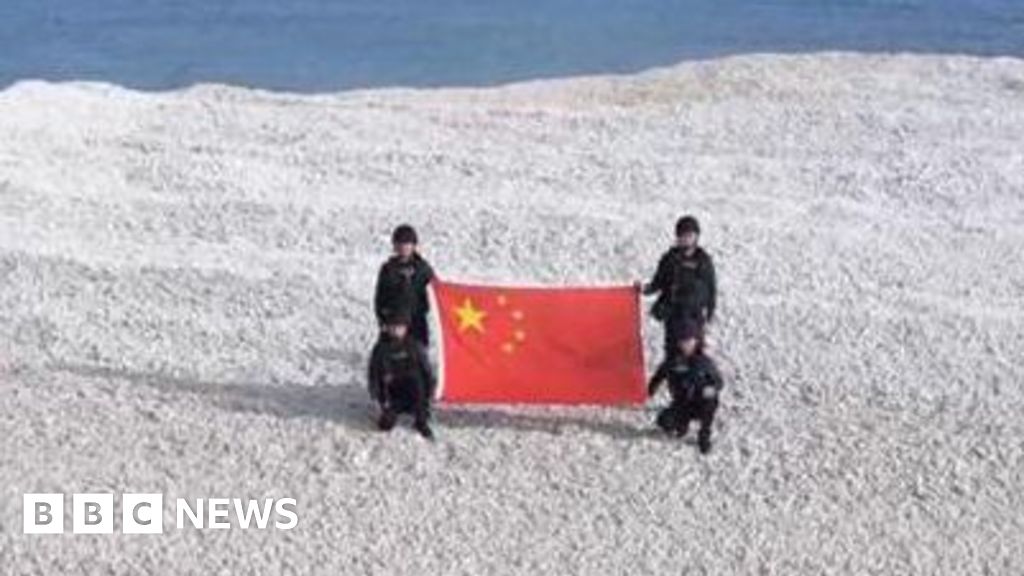Beijing's Grab for a Tiny South China Sea Sandbank: A New Geopolitical Flashpoint?
The South China Sea, a vital waterway teeming with resources and strategic importance, is once again simmering with tension. China's recent actions around a tiny, barely-habitable sandbank are raising eyebrows and sparking fears of a renewed escalation in the region's long-standing geopolitical disputes. This seemingly insignificant piece of land could be the catalyst for a significant shift in power dynamics.
The Contested Sandbank: A David and Goliath Story?
The exact location of the sandbank in question remains somewhat ambiguous in official statements, a tactic employed by both sides to maintain a degree of strategic opacity. However, reports and satellite imagery suggest it's a small, relatively unassuming feature within a larger, fiercely contested archipelago. This makes it even more intriguing – why focus on such a seemingly insignificant location?
The answer likely lies in its strategic positioning. Even small features in the South China Sea can hold significant value due to their proximity to crucial shipping lanes and potential resource deposits. Control of these features, even if they are uninhabited, can project influence and potentially disrupt maritime activity. This is what makes this sandbank a potent symbol in the ongoing power struggle.
China's Assertive Actions: A Pattern of Behavior?
China's actions aren't isolated incidents. They are part of a broader pattern of assertive behavior in the South China Sea, which includes:
- Artificial Island Construction: The creation of artificial islands, complete with military infrastructure, has significantly altered the geopolitical landscape.
- Maritime Militia Activities: China's maritime militia has been implicated in aggressive actions against other claimants' fishing vessels and research activities.
- Disputed Claims: China's expansive "nine-dash line" claim encompasses vast swathes of the South China Sea, overlapping with the claims of several other nations, including Vietnam, the Philippines, Malaysia, Brunei, and Taiwan.
These actions have consistently fueled regional tensions and raised concerns about freedom of navigation in one of the world's busiest waterways. The current sandbank incident, however small it may seem, fits squarely within this pattern.
International Response: A Cautious Approach?
The international community is reacting with a mixture of concern and caution. While many nations have expressed their anxieties about China's actions, direct confrontation remains unlikely due to the complex web of economic and political relationships in the region.
Several regional bodies, including ASEAN (Association of Southeast Asian Nations), have attempted to mediate disputes, but progress has been slow. The lack of a robust, unified international response only emboldens China's assertive behavior.
The Future: A Looming Geopolitical Storm?
The situation remains precarious. The tiny sandbank incident underscores the volatile nature of the South China Sea and the potential for even seemingly minor events to escalate into larger conflicts. The focus on this sandbank highlights China's determination to maintain its control over the region. This ongoing power play raises serious questions about regional stability, freedom of navigation, and the broader implications for global security.
The international community must remain vigilant and continue to advocate for peaceful resolution of disputes through diplomacy and adherence to international law. The small sandbank may be a minor feature on a map, but its significance in the larger context of regional and global politics cannot be overstated. Failure to address these underlying tensions risks a far greater conflict in the future.
Keywords: South China Sea, China, Geopolitics, Sandbank, Maritime Dispute, Nine-Dash Line, ASEAN, International Relations, Regional Security, Freedom of Navigation.

